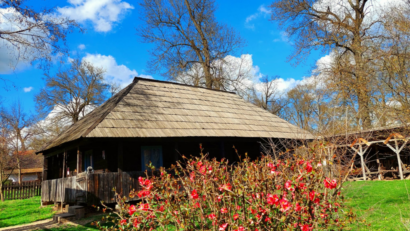80 years since the assassination of historian Nicolae Iorga
On September 6, 1940, the regime led by General Ion Antonescu in partnership with the legionnaires, proclaimed Romania a national-legionary state.

Steliu Lambru, 14.12.2020, 14:00
On September 6, 1940, the regime led by General Ion Antonescu in partnership with the legionnaires, proclaimed Romania a national-legionary state. This meant that the model of state and society adopted was the fascist one, imagined by the Iron Guard and inspired by Italian fascism and German Nazism. A supporter of the superior race theory, the Romanian fascism was synchronised with then European one. Most historical studies see the Antonescu-legionary regime as a strict one, against basic democratic norms.
Imposing such as regime was possible only in the context of a deep crisis, such as the one undergone by the rule of Carol II, a Romanian version of the European crisis. Starting 1938, Carol II had imposed a regime of personal authority, restricting rights and liberties. At the beginning of September 1940, the king was held responsible for the territorial disaster suffered by Romania. In June, Bessarabia and Northern Bukovina had been annexed by the Soviet Union while two months later Hungary annexed Northern Transylvania, under the Second Vienna Award.
On September 5, under huge public pressure, Carol II appointed General Ion Antonescu as head of state and renounced the throne. Although it lasted only four and a half months, until January 23, 1941, the regime was defined by repressive measures, especially against Carol II’ camarilla, a group seen as having ruined democracy and made up of courtiers, senior diplomats, army officers, politicians and industrialists who were all in some way dependent upon royal favour. The legionary revenge against 65 dignitaries who had supported Carol II can be explained by the fact that the latter had been involved in the repressive measures against them and especially in the killing of the Iron Guard leader, Corneliu Zelea Codreanu, in 1938.
One of the legionnaires’ victim was historian Nicolae Iorga. Born in 1871, he is generally seen as the most important historian of Romanians. There is even a Iorga cult in Romania, for two reasons: his impressive work and his tragic death. Iorga wrote a lot, at least 1,250 books and 25,000 articles. Before being the victim of the fascist-type terrorism, Iorga was the model of intellectual who cultivated nationalism, eventually falling victim to its fury. Historian Ioan Scurtu summarized Iorga’s ideas and his political activity: ”Iorga was a nationalist, who in 1910 created, together with A.C. Cuza, the Democratic Nationalist Party. He cultivated the idea that Romanians must prove themselves in all domains, including the economic one, in the context in which, ever since the end of the 19th century, the main industrial companies, banks and trade were in the hands of national minorities and of foreigners. He believed the Romanian element had to replace the foreign one, by means of nationalization. In his opinion, the way to do this was a peaceful one, the Romanians having to prepare, to study, to learn how to do each job so as to be able to win the competition with the foreigners. This was what he supported. The legionnaires propagated his ideas, but they took on an extremist path and went as far as to murder their opponents.”
Iorga’s separation from the legionnaires, whose mentor he initially wanted to be, took place in the mid-1930s. Iorga’s vanity and difficult personality made this relation to degenerate. The critical moment took place in 1938, when, after political parties had been dissolved, the Legionary Movement ended its activity through a document signed by Codreanu, ever since February 24, 1938. However, the legionary trade continued, and their stores sold products at smaller, production costs. Ion Scurtu explains: ”Nicolae Iorga said the legionnaires’ stores were serving as meeting venues where they gathered and planned actions meant to destabilize the government. Iorga asked for the legionary trade to be banned. Against this background, Codreanu sent Iorga a letter, in which he accused him of being dishonest. After having spread the idea that Romanians should handle trade so as to remove foreigners, Jews in particular, Iorga was now asking for these stores to be closed. Iorga showed the letter received from Codreanu to Armand Calinescu, who in his turned showed it to Carol II. Iorga was advised to sue Codreanu, so the matter was taken to Court. During the trial, Iorga realized he took a risky path and withdrew his court action. But the trial continued and Codreanu was sentenced to 6 months behind bars. During the trial, the headquarters of the Legionary Movement and the houses of a number of members were searched. Based on these searches, a new court action was opened against Codreanu, who, in May 1938 was sentenced to 10 years of hard labour for actions against the state and for holding secret information, accusations which were false. He was imprisoned and, while being transported from Ramnicu Sarat to Jilava, on the night of 29 to 30 November, 1938, he was murdered near the Tancabesti Forest.”
On November 27, 1940, Nicolae Iorga was taken from his home by a team of legionnaires, and killed with nine bullets in the Strejnicu forest. Thus, the historian paid with his life for his opinions, at a time when political violence, hatred and abuse took the place of justice.




























